
 |
FRANKLY SPEAKING
Poll reforms are the answer, Mr Prime MinisterPunjab BJP chief Vijay Sampla, also the Union Minister of State for Social Justice and Empowerment, is a man of few words. Fresh from intensive election campaign in rural Punjab and the 'Vijay Sankalp Yatra', he spent some time with Vidyarthi Kumar for an interview for Power Politics. Excerpts:
Arnold Toynbee believed that history bore constant witness to the truth of Meredith dictum, "We are betrayed by what is false within."
Prime Minister Modi has to understand the real face of India's stark poverty and corrupt practices. The wheels of power operate through the route of political funding. To check this, we need comprehensive electoral reforms. Without poll reforms the battle against corruption cannot give the desired results. The Election Commission of India (ECI) has often expressed serious concern about the use of black money in elections. It is a vicious circle. A well-established nexus exists between money bags and politics. Black money pours in and in the process more black money gets generated. That is the reason why the black money economy has become more powerful than the official economy. Mercifully, at the BJP national executive meeting on January 7, Narendra Modi said, "people have a right to know where our (political) funds are coming from.." But, the moot point is : how to go about the task ? The Election Commission had sought a ban on anonymous donations of over Rs 2,000. The current cap in this regard is Rs 20,000. Indeed, cancerous cells of illgotten wealth have been eating into the vitals of the body politic, maiming and hampering its progress. The rot is at the root of the system of money flow in electoral functioning. Basically, we are confronted with three aspects of the electoral problem – the ever-rising costs, the means by which the resources are raised and the manner in which the electoral administration functions, to the disadvantage of honest citizens. On an average, elections are held every four or five years at the local, State and national levels. One can imagine the quantum of black money that gets generated by hundreds of corporators, legislators and parliamentarians. Millions of rupees are churned out by the existing corrupt system which, while sustaining democracy, becomes an easy prey to rich men's money power and the mafia brigade's muscle power. "The collection of party funds, especially for elections purposes, is today the largest source of political corruption and other fields of corruption," Jayaprakash Narayan observed in Everyman, the journal founded by him. In its historic judgement in Amarnath Chawla versus Kanwarlal case, the Supreme Court was forthright on its observations on political funding . It said : "The small man's chance is the essence of Indian democracy and that would be stultified if large contributions from rich and affluent individuals or groups are not divorced from the electoral process." The apex court said this as far back as 1975, but the political leaders have gone ahead merrily with their abuses and the pursuit of "note through votes" and "vote through notes." The silent majority has only worsened the situation. Today corruption is a big business in electoral politics. The free play of money bags has not only dehumanised politics but has devalued the traditional value system. It was, of course, nice to hear the Prime Minister's anticorruption rhetoric during the notebandi days. But corruption cannot be eliminated by big talks. This calls for massive reforms in the financial, administrative and electoral system, especially relating political funding. In fact, in the absence of comprehensive electoral reforms, the notebandi and corruption talk is nothing but mere shadowboxing, an eye-wash. Mercifully, at the BJP national executive meeting on January 7, Narendra Modi said, "people have a right to know where our (political) funds are coming from.." But, the moot point is : how to go about the task ? The Election Commission had sought a ban on anonymous donations of over Rs 2,000. The current cap in this regard is Rs 20,000. Electoral reforms have to be viewed in a large national framework. They must be comprehensive and all-embracing. Viewed in this light, the Prime Minister's suggestion for holding central and State elections simultaneously does make sense. It might help in curbing corruption to some extent, but this will not solve the massive problem of corruption and black money in the polity. For this purpose, all-round poll reforms have to be initiated and enforced. This calls for an indepth round table discussion on poll reforms Looking beyond , we ought to eliminate vulgar display of money power and related malpractices which have made today's politics a slave of money bags, affecting the quality of legislators and parliamentarians in the process. Many of them are known to have criminal records. The 16th Lok Sabha polls showed that out of 541 winner 186 have criminal cases and 112 have "serious" criminal cases against them. The way undesirable characters of money and muscle power are sneaking into the mainstream of Indian politics is highly disturbing. We have today more crorepatis in the two Houses of Parliament than ever before. Where is the room for ordinary citizens in the present corrupt systems ? The dysfunctional system of election financing is a major reason for criminalisation of the Indian polity.This is gradually shaking the faith of honest and educated Indians in the very system of democracy : In fact, the "new dynamism" in the political system and assertive electorate has exposed the structural and operational weaknesses of Indian democracy. This calls for major electoral reforms In the first place, we have to ensure total independence of the Election Commission. It must not be beholden to the powers that be, nor should it be fearful of the executive. For years, politicians of all shades and hues have paid lip service to the suggestions of poll reforms. Will Prime Minister Narendra Modi prove to be different? Second , there should be a ceiling on expenditure by political parties in the poll fray as is applicable to the candidates. Three, the ECI should be empowered to deregister dubious political parties enjoying tax exemptions and other benefits without contesting elections. Four, the existing cash donations of Rs 20,000 should be lowered to Rs 2,000 only. Five, all payments to political parties and individual candidates need to be operated digitally and through banking channels. Six, it should be mandatory for candidates to show their sources of income, not merely their assets and liabilities under Form 26 of the Conduct of Election Rules of 1961. Form 26 declarations, as JD (U) leader Pavan K. Varma puts it, "hide more than they reveal." This calls for major changes in the existing Representation of the People Act.
For years, politicians of all shades and hues have paid lip service to the suggestions of poll reforms without adopting concerate measures. Will Prime Minister Narendra Modi prove to be different ? Going by his recent public declarations, he seems to be genuine in his intentions. But his real test lies in giving a concrete shape to what he says at public fora. I keep my fingers crossed. |
|


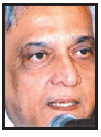 Hari Jaisingh
Hari Jaisingh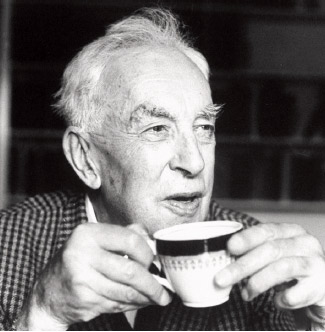 Arnold Toynbee
Arnold Toynbee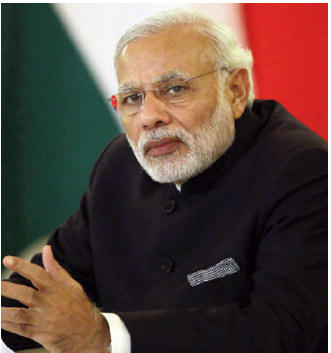 Narendra Modi
Narendra Modi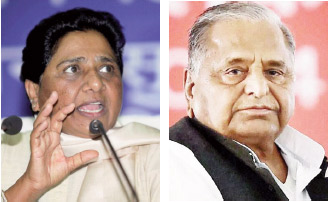 Mayawati and Mulayam Singh
Yadav
Mayawati and Mulayam Singh
Yadav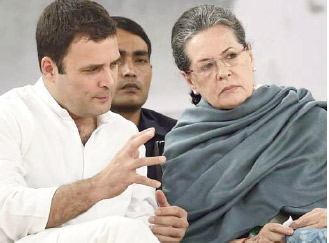 Sonia Gandhi and Rahul Gandhi
Sonia Gandhi and Rahul Gandhi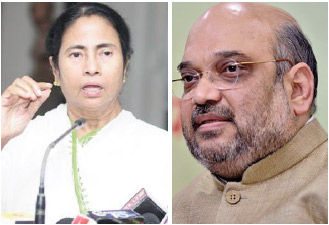 Mamata Banerjee and Amit Shah
Mamata Banerjee and Amit Shah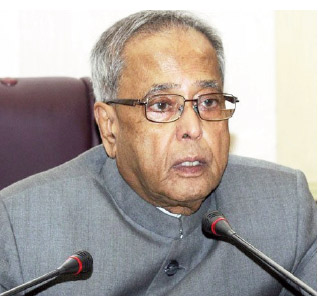 Pranab Mukherjee
Pranab Mukherjee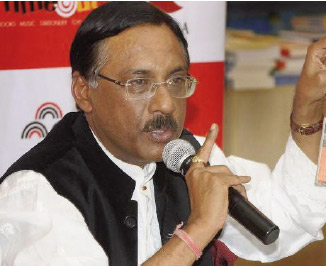 Pavan K. Varma
Pavan K. Varma